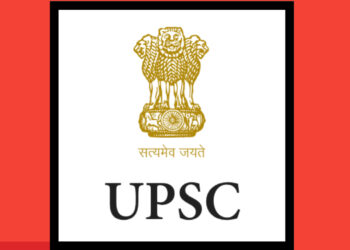Table of Contents
ToggleIntroduction
Mastering UPSC Essay Writing: Best Practices To choose applicants for India’s most significant administrative roles, the UPSC Civil Services Examination (CSE) is a prestigious and fiercely competitive test. The preliminary exam, mains exam, and interview are some of the stages that make up the exam. The Mains Exam is the most important of these, and the essay paper is a crucial part of this phase.
The essay paper in the UPSC Mains is a crucial assessment of a candidate’s capacity for effective, rational, and clear concept expression. One of the most crucial areas for a candidate to concentrate on is the essay paper, which is worth 250 marks. It assesses not just a candidate’s writing abilities but also their depth of knowledge on a wide range of topics, critical thinking abilities, and mental processes.
The UPSC essay subjects are frequently philosophical and wide-ranging, covering anything from current events to abstract ideas. They may discuss issues pertaining to international relations, politics, economics, ethics, society, and more. Since this paper is so important, writing essays well is crucial to passing the UPSC exam.
1. Understanding the UPSC Essay Paper: Format and Requirements
1.1. Essay Paper Structure
Each of the two essays in the UPSC essay paper has a word limit of roughly 1000–1200 words. Social issues, economic difficulties, moral conundrums, and global concerns are just a few examples of the many possible essay themes.
The essay paper tests:
- Clarity of Thought: How well you can express your understanding of a topic.
- Critical Thinking: The ability to analyze issues from different perspectives and provide logical reasoning.
- Coherence and Structure: How well the essay is organized and whether the ideas flow logically.
- Originality and Depth of Thought: Whether you are able to present fresh perspectives or insights into the topic.
- Language and Expression: Your ability to write in a lucid and grammatically correct manner.
Each essay carries 125 marks, and candidates are expected to complete both essays in a time span of three hours. The marks distribution is as follows:
- Introduction: Sets the tone for the essay.
- Body: Core arguments and analysis.
- Conclusion: Summarizes the essay, reinforces the main points, and provides a concluding thought.
Read more
1.2. Types of Essay Topics
The UPSC essay topics can broadly be categorized into the following types:
- Abstract Topics: These are theoretical and philosophical in nature, e.g., “What is true freedom?”, “The role of youth in nation-building.”
- Contemporary Issues: These include current events, national and international news, e.g., “Climate change and its impact on human life,” “Globalization and its challenges.”
- Value-based Topics: Focus on ethical issues, social justice, moral dilemmas, e.g., “Corruption in India: Causes and consequences,” “Women empowerment in modern society.”
- Philosophical and Political Topics: Topics related to democracy, governance, political ideologies, e.g., “Democracy and its challenges in 21st century,” “Cultural diversity in India.”
- Socio-Economic Issues: Topics related to development, economic reforms, social justice, etc., e.g., “Sustainable development and its importance in the modern era.”
Since writing on any of these subjects calls for a broad range of general knowledge, an awareness of current events, and the capacity to make well-reasoned arguments, candidates should be well-prepared.

2. Best Practices for UPSC Essay Writing
2.1. Understand the Topic Thoroughly
It is crucial to thoroughly read and comprehend the essay topic before beginning. Because they misunderstand the subject or write unrelated material, many applicants receive low scores. Here’s how to tackle the subject:
- Break down the Topic: Identify key words and phrases in the topic to understand its meaning. For example, if the topic is “The role of technology in education,” think about both the role of technology and education separately before weaving them together.
- Brainstorm Ideas: Jot down your initial thoughts, arguments, examples, and references related to the topic. This will help you organize your ideas and decide the direction of your essay.
- Focus on the Core of the Topic: Avoid going off-topic. Stay focused on the main issue presented in the essay.
2.2. Structure Your Essay Effectively
A well-structured essay makes it easier for the reader to follow your arguments and enhances the clarity of your thoughts. An ideal structure for a UPSC essay includes:
- Introduction: Set the context and introduce the topic clearly. A good introduction provides a roadmap for the essay and grabs the reader’s attention. Avoid being overly philosophical in the introduction; keep it relevant and straightforward.
- Tip: You can start with a relevant quote, statistic, or anecdote to create a strong impression.
- Body: This is where the main content of the essay lies. Break the body into subsections that address different aspects of the topic. Use headings or short paragraphs to organize your thoughts. Each paragraph should introduce one idea or argument with supporting facts, examples, or reasoning.
- Tip: Include case studies, examples, and real-life references to make your argument more convincing.
- Conclusion: The conclusion should wrap up the essay by summarizing the key points and offering a concluding thought or solution. It should tie back to the introduction and provide a sense of closure.
- Tip: A thought-provoking conclusion that challenges the reader to reflect on the essay’s theme can leave a lasting impact.
Read more
2.3. Balance Between Depth and Breadth
Finding a balance between offering a variety of viewpoints and delving deeply into important topics is essential when writing UPSC essays. Although you should discuss all facets of the subject, refrain from doing a cursory study. Examine the fundamental problems in detail, present reasoned arguments, and support them with facts or examples.
2.4. Use Clear and Concise Language
Your writing should be straightforward, understandable, and accurate. Steer clear of complicated jargon unless you need to clarify a certain topic. Focus on communicating your ideas in a way that is easy to grasp rather than utilizing really complicated language.
- Tip: Clarity is more important than complexity in UPSC essay writing. If you can explain your ideas in simple language, your essay will be more impactful.
2.5. Work on Your Handwriting
Legible handwriting is crucial for the UPSC Mains. No matter how good your writing is, the examiner could not see it if they can’t read your handwriting. Write carefully and refrain from scribbling.
2.6. Revise Your Essay
Always leave a few minutes to revise your essay. In your revision, check for:
- Spelling and grammatical errors
- Clarity and coherence of sentences
- Paragraph alignment and structure
- Relevance of examples
2.7. Practice, Practice, Practice
The more essays you write, the better you will get at organizing your thoughts and writing under time constraints. Regular practice will help you identify your strengths and weaknesses in essay writing, allowing you to refine your skills.

3. Common Mistakes to Avoid
- Irrelevant Content: Avoid including material that does not directly address the essay topic.
- Excessive Philosophizing: While philosophical arguments can be useful, ensure that they are grounded in real-world issues and are not abstract.
- Lack of Structure: Essays that lack a clear structure are difficult to follow and confuse the reader. Always organize your thoughts into coherent paragraphs.
- Overuse of Quotes: While quotes can be powerful, overuse of quotes can make the essay sound superficial. Use them sparingly.
- Neglecting Current Affairs: Failing to incorporate relevant examples from current events can make the essay seem outdated.
Conclusion
Writing essays for the UPSC Civil Services Exam is a skill that blends imagination and reason. With regular practice, one can improve their capacity to express complicated thoughts in a clear and logical manner. You can greatly increase your chances of receiving a high score on the essay paper by adhering to the best practices described in this article, which include using clear language, rehearsing frequently, organizing the essay efficiently, and having a complete understanding of the subject.
Recall that an essay that is compelling, well-structured, and thoroughly researched will always stand out on the UPSC test.
Read more
FAQ
1 What is the role of the Essay Paper in the UPSC Exam?
The Essay Paper tests a candidate’s ability to articulate their thoughts clearly, logically, and coherently. It holds 250 marks in the Mains stage and is crucial for securing a high overall rank.
2 What kind of topics are asked in the UPSC Essay Paper?
Topics can range from abstract concepts to contemporary issues, philosophical debates, socio-economic issues, and political matters. Candidates should be prepared to address a variety of subjects.
3 How can I improve my essay writing skills for UPSC?
To improve your essay writing, focus on reading widely, practicing writing regularly, and analyzing model essays. Focus on clarity, coherence, and critical thinking.
4 Is it important to include current affairs in the essay?
Yes, including relevant examples from current affairs can make your essay more relevant and impactful. However, it’s crucial to ensure the examples align with the topic.
5 How much time should I spend on each essay during the UPSC Exam?
You have a total of three hours for the two essays. Aim to spend around 90 minutes on each essay, leaving time for revision.
Read more

















